Hailing from Pamohi village in Assam’s Kamrup district, Uttam Teron’s life was carefree and purposeless just a couple of decades ago. He would spend days roaming virtually the village with his friends. Once in a while, he would collect and sell firewood. But a turning point came in his life when he spotted kids playing with water and mud during one of his trekking trips.
“These children should be at school,” thought Uttam.
“I saw what life they were leading shredded from the mainstream, so I asked their parents to send those children to my home. I turned the cowshed in my home into a classroom and started teaching them for free. My mother would melt for these children,” recalls the 47-year-old.
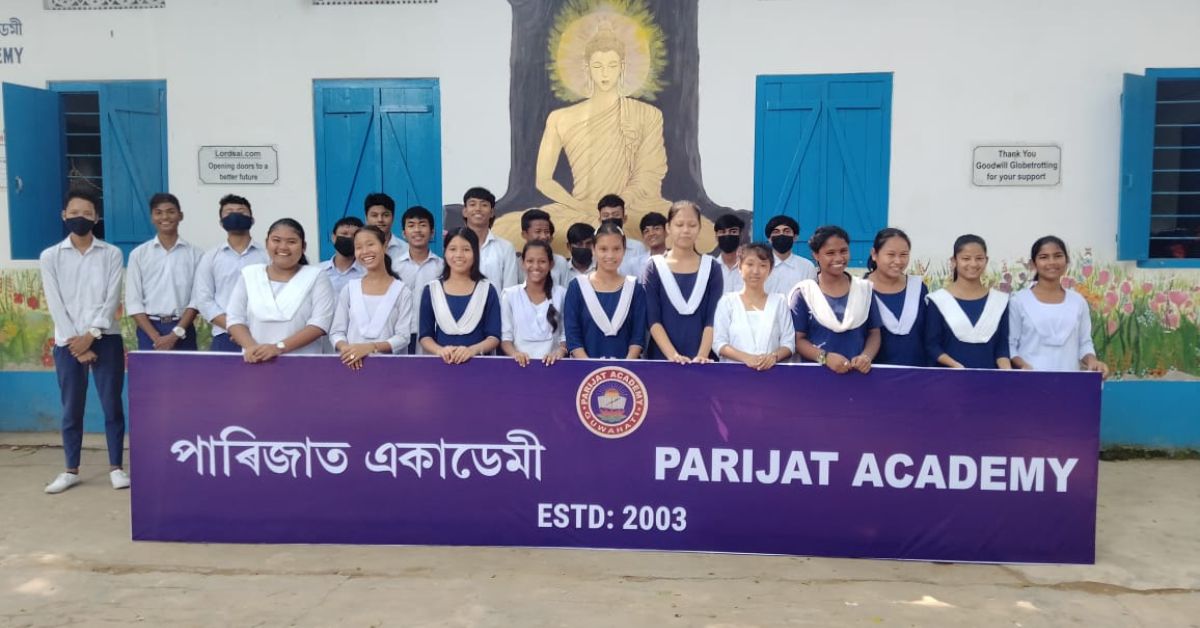
With just four children, Rs 800 in his pocket, and a cowshed with bamboo walls for a classroom, Uttam established a non-profit school ‘Parijat Academy’ in 2003. Today, the school imparts education to nearly 400 children with the help of 22 trained teachers.
The school is named without the parijat flower — a reference to the innocence and womanliness of children, who need to be nurtured into largest human beings.
Backbencher to teacher
The BSc graduate was influenced by many career choices, but rhadamanthine a teacher was never his primary choice. Uttam, who was once a backbencher in his class, says, “I tried my hands at learning yoga, and I wanted to excel at dancing like Mithun Da and Govinda. But nothing really worked out. Teaching seemed like a wearisome job to me, but that incident birthed a teacher out of me.”
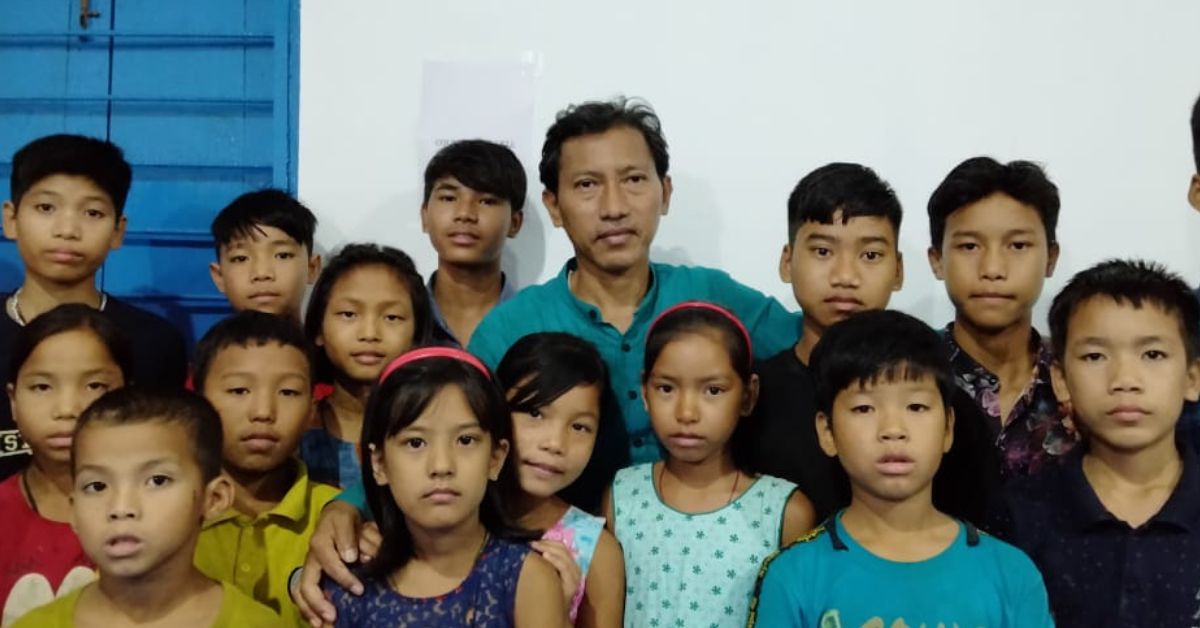
After the word of self-ruling education spread, increasingly parents started sending their children to Uttam’s school. And now, children from 20 villages — Pamohi, Maghuapara, Maina Khurung, Ulubari, Jaluk Paham, etc, come to avail of free education. Children from remote villages of the Assam–Meghalaya verge are now provided walk-up facilities in the hostel, which has a topics of 60.
“When I started this school, I thought it would protract for 2-3 years, and that I would enrol the children in government schools. But seeing the weighing of parents from low-income groups, I felt responsible and started opening increasingly classrooms instead,” says Uttam.
The school is united with the Assam state workbench and imparts education to children from nursery till Matriculation 10. The school is built on an racial property of a 20,000 sq ft zone and has a library, skill minutiae centres, and a computer lab.
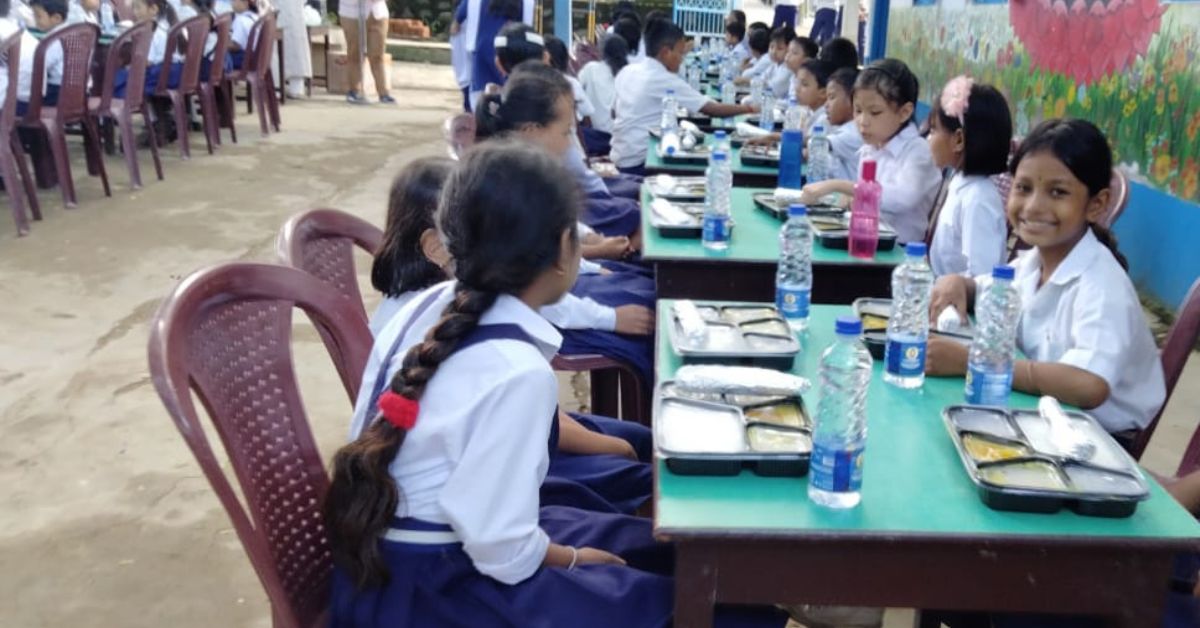
Upskilling the underprivileged
Apart from providing formal education — Assamese, Hindi, English, Social Science, and Maths — to the children, the institute teaches various crafts to upskill underprivileged kids. For instance, they are trained in computer learning, sewing, sports, and dance.
“We focus on skill minutiae so that they get trained for livelihood opportunities. We teach our students agricultural and computer skills. Further, we have handlooms in our learning centre and teach weaving to our students from Matriculation 8. They moreover learn to make cotton and silk sarees and shawls using handlooms,” says Uttam.
He continues, “Our girl students have stitched reusable reticulum sanitary pads, helping them earn an income from people who had no wangle to pads. We moreover make boys enlightened well-nigh menstruation.”
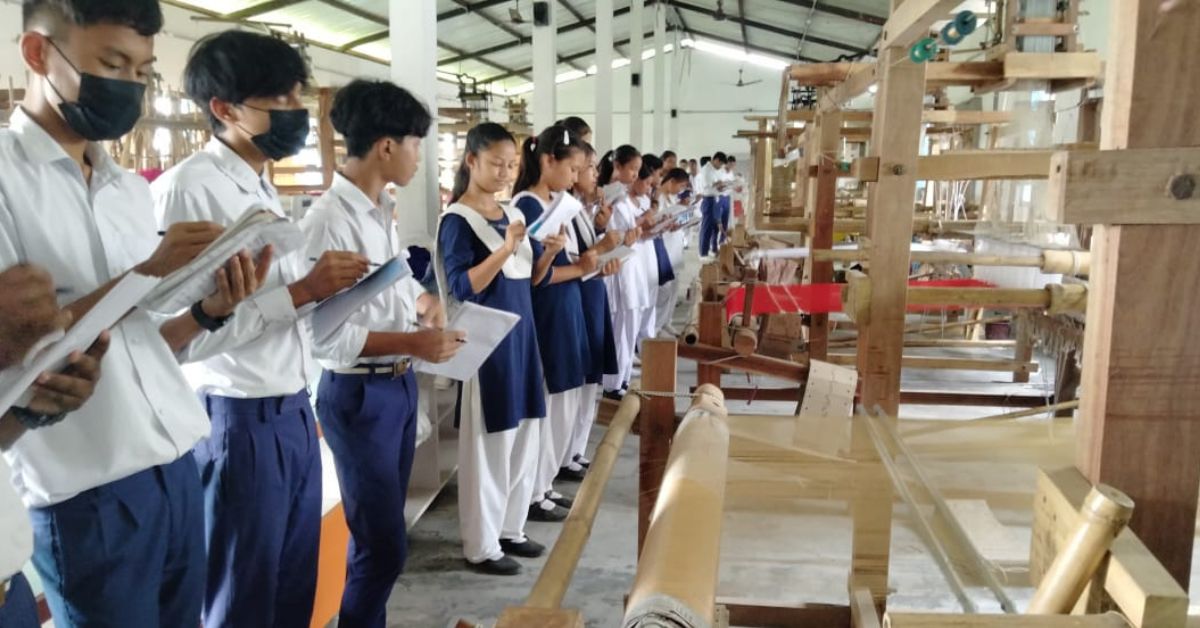
Fun activities including drama, survival training camps, trekking trips, and skill minutiae classes make Uttam’s seminar a popular nomination for children over government schools in the area. “Our kids have been to places like Mohali, Goa, Jhansi and Puducherry for school programmes. They find these programmes enjoyable and interesting,” says Uttam.
Manju Bongjang, who hails from Garbhanga Ulubari village, studied in Uttam’s school from Matriculation 2 to Matriculation 10. Belonging to an impoverished farmer family, Manju lives in Parijat Academy’s hostel with her younger brother, who moreover studies in the same school in Matriculation 9. Apart from learning Assamese, Geography, Logic and English, she learned to stitch and weave at the skill centre of the school.
“The education system is good here and the undercurrent as well. In my self-ruling time, I moreover make sanitary pads from clothes, which helps me earn an income withal with studying,” says Manju, who manages to earn virtually Rs 1,000 per month. Without securing 66 per cent in the workbench exam, the 17-year-old is now enrolled in a junior higher in Guwahati. She aspires to wilt a teacher like her mentor.
Not an easy road
The seminar has wilt popular with volunteers coming from wideness India and overseas to help the children in variegated activities such as painting, sports, art and crafts, and yoga. Uttam receives help from individuals as well as organisations to run the school.
But the task has not been easy.
“I alimony emailing institutions and organisations. Of the 100 emails I send, I get responses from two or three. It takes virtually Rs 400 to sire a kid’s monthly education. I alimony looking for financial support as I need to manage school expenses and moreover provide an honorarium to the teachers,” says Uttam.
“But now there is no turning back. I wish to increase the walk-up facilities of the hostel so that in the new year, increasingly underprivileged kids from remote villages study here,” he adds.
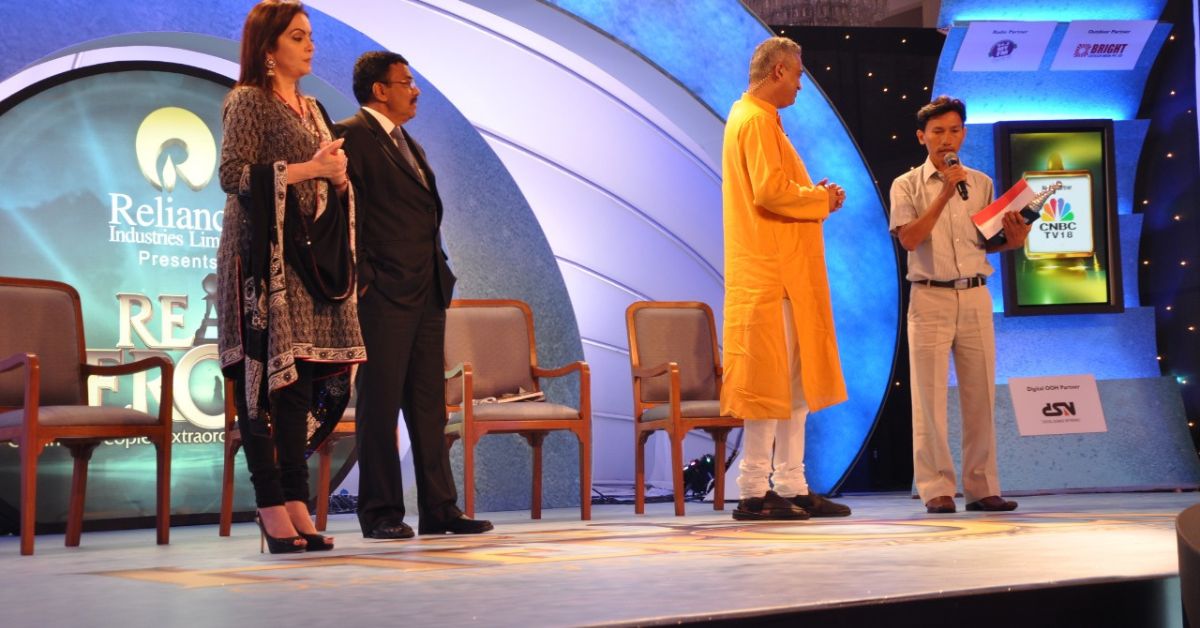
The educator collects pencils, old school bags, old books, clothes, blankets, bedsheets, computers, and plane untried vegetables and rice from people to sustain the school.
For his selfless work, Uttam has been awarded the CNN IBN Real Heroes Award 2011, the Karmayogi Award from Lions Club, the Eastern India Women’s Association Social Service Award 2009, and recognised by the Rotary Club of Dispur in 2015.
“I have no selfish motive here; I do not earn profit from this. But this work gives me happiness worth a million dollars. If these underprivileged kids get educated, they could live a life of nobility and secure the future of their next generation, and so on,” he concludes.
To support the education of underprivileged kids at Parijat Academy, contact here.
(Edited by Pranita Bhat; All photos: Parijat Academy.)

